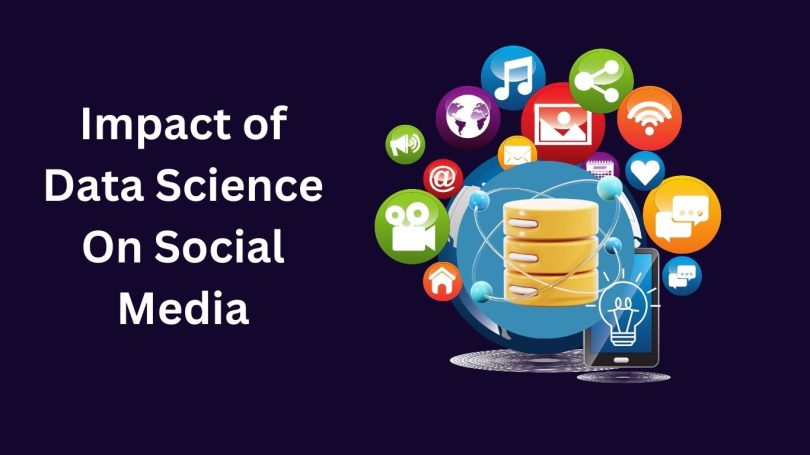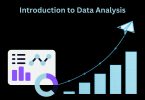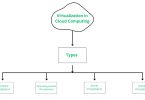In the digital age, social media platforms have become ubiquitous, shaping the way we connect, interact, and consume information. From Facebook to Twitter, Instagram to LinkedIn, billions of users worldwide engage with these platforms daily, generating vast amounts of data with every click, like, and share. Amidst this deluge of data, the emergence of data science has profoundly transformed the landscape of social media, revolutionizing how we connect, engage, and understand human behavior. In this article, we explore the multifaceted impact of data science on social media platforms.
Curated Experiences: Personalization Through Data Analysis:
Data science lies at the heart of personalized user experiences on social media platforms. By analyzing user interactions, preferences, and demographics, algorithms can tailor content recommendations, advertisements, and suggestions to individual users’ interests and behaviors. This fosters a sense of relevance and connection, enhancing user engagement and satisfaction. From curated news feeds showcasing topics likely to pique your interest to targeted ads for products you might genuinely use, personalization makes social media experiences more relevant and enjoyable.
Furthermore, predictive analytics algorithms can anticipate user preferences and behaviors. This allows platforms to proactively recommend content and connections tailored to each user’s evolving interests. By leveraging machine learning and natural language processing techniques, social media platforms can decipher nuanced user signals and deliver personalized experiences that resonate with individual preferences and contexts.
Guarding the Social Sphere: Content Moderation and Safety
Data science plays a critical role in content moderation and safety measures on social media platforms. With the proliferation of user-generated content, ensuring the integrity and safety of online communities has become a paramount concern. Advanced algorithms powered by artificial intelligence (AI) can detect and filter out harmful content, including hate speech, misinformation, and graphic imagery, fostering a safer and more inclusive online environment.
Natural language processing models trained on vast datasets can analyze text content in real-time, flagging potentially harmful or abusive language and alerting moderators for review. Similarly, image recognition algorithms can identify and remove inappropriate or sensitive imagery, mitigating the spread of harmful content. By harnessing the power of data science, social media platforms can proactively address content moderation challenges while preserving freedom of expression and fostering healthy online discourse.
Data-Driven Insights: Empowering Businesses and Marketers
Data science enables social media platforms to glean valuable insights into user behavior, preferences, and trends, empowering businesses and marketers to make informed decisions and drive strategic initiatives. Through data analytics and sentiment analysis, platforms can extract actionable intelligence from user interactions, conversations, and engagement patterns, providing valuable market insights and consumer feedback.
By analyzing social media data, businesses can identify emerging trends, gauge consumer sentiment, and monitor competitor activities in real-time. This market intelligence informs product development, marketing strategies, and customer engagement initiatives, enabling businesses to stay agile and responsive in dynamic market environments. Moreover, social media analytics tools offer comprehensive dashboards and visualizations, allowing stakeholders to track key performance metrics and measure the impact of their social media campaigns effectively.
Amplifying Influence: The Rise of Data-Driven Influencer Marketing
Data science has transformed the landscape of influencer marketing, enabling brands to identify, engage, and collaborate with influencers who resonate with their target audience. By leveraging social media analytics and network analysis techniques, brands can identify influencers based on their reach, relevance, and engagement metrics, fostering authentic partnerships that drive brand advocacy and consumer trust.
Moreover, data-driven insights enable brands to track the effectiveness and ROI of influencer marketing campaigns in real-time, allowing for continuous optimization and refinement. Advanced attribution models attribute conversions and sales to specific influencers or campaigns, providing valuable insights into the impact of influencer partnerships on brand awareness and revenue generation. By harnessing the power of data science, brands can forge meaningful connections with influencers and amplify their brand message across social media platforms.
Shaping the Future: Predictive Modeling and Trend Forecasting
Data science empowers social media platforms to forecast emerging trends, anticipate user behavior, and adapt to evolving market dynamics proactively. Through predictive modeling and machine learning algorithms, platforms can analyze historical data patterns and extrapolate future trends, enabling businesses to stay ahead of the curve and capitalize on emerging opportunities.
For example, predictive analytics models can forecast viral content trends, enabling content creators and marketers to create timely and engaging campaigns that resonate with their target audience. Similarly, demand forecasting models can anticipate consumer preferences and purchasing behavior, informing inventory management and supply chain optimization strategies. By leveraging data science, social media platforms can serve as invaluable sources of market intelligence and trend forecasting insights, empowering businesses to innovate and thrive in an increasingly competitive landscape.
Conclusion: A Symbiotic Relationship
The impact of data science on social media is profound and far-reaching, revolutionizing how we connect, communicate, and consume information online. However, it’s crucial to acknowledge the potential drawbacks. Algorithmic bias can lead to unfair targeting and echo chambers. The vast collection of personal data raises ethical concerns about privacy and responsible data usage. As we move forward.






Leave a Comment